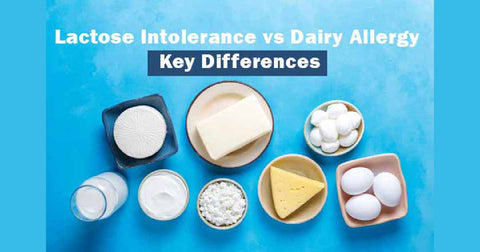Vitamins are the essential micronutrients that play a vital role in maintaining our overall health and well-being. They act as catalysts for various biochemical reactions within the body, supporting functions ranging from immunity to energy production, and even aiding in maintaining healthy skin and vision. While they are required in small quantities, their absence or deficiency can lead to a range of health issues.
Recognizing the signs and symptoms of vitamin deficiencies is crucial in preventing and addressing potential health concerns. Often, these deficiencies manifest through distinct indications that serve as warning signals from our bodies. From fatigue and weakened immunity to skin problems and neurological issues, these signs can point toward specific vitamin deficiencies.
By shedding light on these deficiencies, this article aims to emphasize the significance of a well-rounded diet and prompt medical advice when signs of deficiency arise. Ultimately, awareness and proactive measures are vital in maintaining vibrant health and vitality.
Vitamin A Deficiency

Vitamin A is a fat-soluble vitamin critical for various bodily functions, including vision, immune system support, and cell growth. Its deficiency can lead to a range of health issues, particularly affecting vision and immunity.
Vitamin A exists in two forms: retinoids (found in animal products) and carotenoids (found in plant-based foods). It's crucial for maintaining healthy vision, supporting the immune system, and promoting cell growth and differentiation.
Common Signs and Symptoms of Vitamin A Deficiency
- Night Blindness: Difficulty seeing in low-light conditions, often one of the initial signs of Vitamin A deficiency.
- Dry Eyes: Insufficient Vitamin A can lead to dry, irritated eyes and even corneal damage.
- Skin Issues: Rough, dry skin, as well as increased susceptibility to infections.
- Compromised Immunity: Increased susceptibility to infections, especially respiratory infections, due to weakened immunity.
- Delayed Growth: Particularly in children, Vitamin A deficiency can hinder proper growth and development.
Vitamin B Deficiency
Vitamin B is a complex group of nutrients that collectively contribute to various bodily functions, including energy production, nerve function, and metabolism. Comprising several types such as B1 (thiamine), B6 (pyridoxine), and B12 (cobalamin), deficiencies in these vitamins can lead to a range of health issues.
Different Types of Vitamin B and Their Functions
- B1 (Thiamine): Thiamine aids in converting carbohydrates into energy and supports proper functioning of the heart, muscles, and nervous system.
- B6 (Pyridoxine): Pyridoxine is involved in over 100 enzyme reactions, including the metabolism of amino acids and the production of neurotransmitters.
- B12 (Cobalamin): Vital for nerve function and DNA synthesis, B12 also plays a crucial role in the formation of red blood cells.
Signs and Symptoms of Common B Vitamin Deficiencies
- B1 Deficiency: Commonly known as beriberi, symptoms include weakness, fatigue, confusion, and nerve-related issues like tingling or numbness in extremities.
- B6 Deficiency: Signs may include skin inflammation, confusion, depression, and anemia due to its role in red blood cell production.
- B12 Deficiency: Often leads to anemia, fatigue, weakness, and neurological problems like tingling in the hands and feet, memory issues, and mood changes.
Impact on Energy Levels, Neurological Health, and Metabolism
Deficiencies in B vitamins can significantly impact energy levels, leading to fatigue and weakness. Neurological symptoms such as tingling, memory problems, and mood changes can arise due to the role these vitamins play in nerve function. Furthermore, disruptions in metabolism can occur, affecting the body's ability to efficiently process food into energy.
Vitamin D Deficiency

Vitamin D, often referred to as the "sunshine vitamin," plays a crucial role in various bodily functions, predominantly in maintaining strong bones, supporting the immune system, and aiding in overall cellular health. Primarily synthesized in the skin upon exposure to sunlight, this vitamin also comes from certain foods and supplements.
Vitamin D is essential for calcium absorption, a process vital for bone health and strength. Beyond its skeletal role, it also regulates immune function, contributing to a robust defense against infections and diseases. Moreover, emerging research suggests its potential influence on mood regulation and mental health.
Signs and Symptoms of Vitamin D Deficiency
- Bone Pain and Muscle Weakness: A common early sign of Vitamin D deficiency is unexplained bone or muscle pain, often manifesting as aches, tenderness, or weakness. This deficiency can lead to bone conditions like osteoporosis or rickets in children.
- Fatigue and Weakness: People lacking adequate Vitamin D might experience persistent fatigue and a general sense of weakness, impacting their overall energy levels.
- Frequent Illnesses: A weakened immune system, potentially linked to Vitamin D deficiency, may result in frequent infections or prolonged recovery from illnesses.
Impact of Vitamin D Deficiency
A chronic deficiency of Vitamin D can have far-reaching consequences. It increases the risk of bone-related disorders, such as osteomalacia in adults and rickets in children, which lead to softening and weakening of bones. Additionally, inadequate levels of Vitamin D might contribute to mood disorders like seasonal affective disorder (SAD) and have implications for mental health.
Vitamin C Deficiency
 Vitamin C, also known as ascorbic acid, is a water-soluble vitamin renowned for its role in supporting the immune system, collagen production, and antioxidant functions within the body. Its deficiency can lead to various health issues, primarily known as scurvy, historically common among sailors deprived of fresh fruits and vegetables during long voyages.
Vitamin C, also known as ascorbic acid, is a water-soluble vitamin renowned for its role in supporting the immune system, collagen production, and antioxidant functions within the body. Its deficiency can lead to various health issues, primarily known as scurvy, historically common among sailors deprived of fresh fruits and vegetables during long voyages.
Vitamin C serves as a powerful antioxidant, protecting cells from damage caused by free radicals and oxidative stress. Moreover, it plays a crucial role in collagen synthesis, essential for the health of skin, tendons, ligaments, and blood vessels. Additionally, it aids in the absorption of iron and supports the immune system's functioning.
Signs and Symptoms of Vitamin C deficiency
- Fatigue and Weakness: Persistent fatigue and weakness can be early indicators of Vitamin C deficiency. As the body struggles to produce collagen without adequate Vitamin C, it impacts energy levels.
- Scurvy-like Symptoms: Traditional symptoms of scurvy include swollen, bleeding gums, joint pain, and easy bruising. In severe cases, wounds might take longer to heal, and there may also be some muscle weakness.
- Dry and Damaged Skin: Insufficient collagen production due to Vitamin C deficiency can lead to dry, rough, and easily bruised skin.
- Weakened Immune Response: As Vitamin C is essential for immune function, a deficiency might result in frequent infections or a prolonged recovery period.
Effects on the Immune System and Overall Health
A deficiency in Vitamin C compromises the body's ability to defend against infections and impacts overall health. This deficiency may increase susceptibility to illnesses, and wounds might take longer to heal. Furthermore, inadequate Vitamin C intake can contribute to increased oxidative stress, potentially linking it to chronic diseases over time.
Maintaining an adequate intake of Vitamin C through a balanced diet rich in fruits and vegetables, such as oranges, strawberries, kiwis, bell peppers, and broccoli, is vital in preventing deficiency-related health issues.
Vitamin E Deficiency
 Vitamin E, a fat-soluble antioxidant, plays a vital role in protecting cells from damage caused by free radicals. Its presence is crucial for maintaining a healthy immune system, skin, eyes, and neurological functions. However, a deficiency in this essential nutrient can lead to several noticeable signs and symptoms.
Vitamin E, a fat-soluble antioxidant, plays a vital role in protecting cells from damage caused by free radicals. Its presence is crucial for maintaining a healthy immune system, skin, eyes, and neurological functions. However, a deficiency in this essential nutrient can lead to several noticeable signs and symptoms.
Vitamin E serves as a powerful antioxidant, safeguarding cell membranes from oxidative stress. Its role in immune function and gene expression underscores its significance in maintaining overall health.
Signs and symptoms of Vitamin E deficiency
- Muscle Weakness: A common indicator is unexplained muscle weakness or muscle deterioration, which can affect mobility and strength.
- Vision Problems: Vitamin E deficiency may lead to impaired vision or retinal damage due to its role in eye health.
- Numbness or Tingling Sensation: You may feel a tingling sensation or loss of sensation in your extremities if you have nerve damage secondary to vitamin E deficiency.
- Poor Immune Response: Reduced immune function might result in increased susceptibility to infections or illnesses.
- Skin Issues: Vitamin E deficiency can contribute to skin problems, such as dryness, and potentially increase the risk of premature aging.
Effects on skin, vision, and neurological health
The impact of Vitamin E deficiency extends to various facets of health. Skin issues, compromised vision, and neurological symptoms like numbness or tingling can significantly affect one's quality of life. Furthermore, since Vitamin E supports immune function, its deficiency may increase vulnerability to infections and cause slower healing.
Vitamin K Deficiency
 Vitamin K, often overlooked among its more renowned vitamin counterparts, is indispensable for our body’s blood clotting process and bone health. This fat-soluble vitamin exists in two primary forms: K1 (phylloquinone) found in leafy greens and K2 (menaquinone) synthesized by bacteria in the gut.
Vitamin K, often overlooked among its more renowned vitamin counterparts, is indispensable for our body’s blood clotting process and bone health. This fat-soluble vitamin exists in two primary forms: K1 (phylloquinone) found in leafy greens and K2 (menaquinone) synthesized by bacteria in the gut.
Primarily known for its role in blood coagulation, Vitamin K activates proteins that aid in clotting, preventing excessive bleeding. Beyond clotting, it also contributes significantly to bone health by regulating calcium. Vitamin K ensures calcium gets directed to the bones, thereby promoting bone strength and reducing the risk of fractures.
Signs and Symptoms of Vitamin K Deficiency
Signs of Vitamin K deficiency often manifest as increased bruising, bleeding gums, nosebleeds, and prolonged bleeding from wounds or cuts. In severe cases, it may lead to gastrointestinal bleeding or blood in the urine, indicating a potential deficiency.
Health Risks Associated with Deficiency
Inadequate Vitamin K levels can pose serious health risks, particularly in cases of uncontrolled bleeding, increased risk of fractures due to weakened bones, and impaired blood clotting, which could result in excessive bleeding during injury or surgery.
Recognizing the signs of Vitamin K deficiency is crucial for prompt intervention. However, deficiencies are relatively rare and often linked to specific conditions such as malabsorption issues, prolonged antibiotic use disrupting gut bacteria, or certain medical conditions affecting fat absorption.
Maintaining a balanced diet rich in leafy greens like kale, spinach, broccoli, and other sources such as soybeans and fermented foods can help prevent Vitamin K deficiencies.
Conclusion
Understanding the signs and symptoms associated with various vitamin deficiencies serves as a vital tool in maintaining our health. From Vitamin A to K, these essential nutrients play distinct roles in our bodily functions, and their deficiencies can manifest in diverse ways, signaling potential imbalances in our diet and overall health.
A balanced and diverse diet that includes a wide array of fruits, vegetables, lean proteins, whole grains, and healthy fats is crucial in obtaining these essential vitamins. However, even with a conscientious diet, sometimes deficiencies can occur due to various factors such as lifestyle, health conditions, or inadequate absorption.
Recognizing the signs, whether it's night blindness hinting at a lack of Vitamin A or fatigue indicating a potential B vitamin deficiency is the first step towards addressing these issues. Seeking advice from healthcare professionals and undergoing necessary tests can help pinpoint deficiencies and guide tailored solutions, which may include dietary adjustments, supplements, or other interventions. Before you start supplements or vitamin-rich nutrients, you need to first confirm whether your gut is intolerant to any of these foods. You can easily test for any intolerances using Advance Food Intolerance Labs (AFIL) at-home food intolerance test kits.
Watch AFIL test kits testimonial videos click here
References:
- Sommer, Alfred. "Vitamin A deficiency and clinical disease: an historical overview." The Journal of nutrition 138.10 (2008): 1835-1839.
- Hvas, Anne-Mette, and Ebba Nexo. "Diagnosis and treatment of vitamin B12 deficiency--an update." Haematologica 91.11 (2006): 1506-1512.
- Maxfield, Luke, and Jonathan S. Crane. "Vitamin C deficiency." (2018).
- Holick, Michael F. "Vitamin D deficiency." New England journal of medicine 357.3 (2007): 266-281.
- Dror, Daphna K., and Lindsay H. Allen. "Vitamin E deficiency in developing countries." Food and nutrition bulletin 32.2 (2011): 124-143.
- Suttie, J. W., et al. "Vitamin K deficiency from dietary vitamin K restriction in humans." The American journal of clinical nutrition 47.3 (1988): 475-480.


.png?v=1737390083)
.png?v=1737187409)


